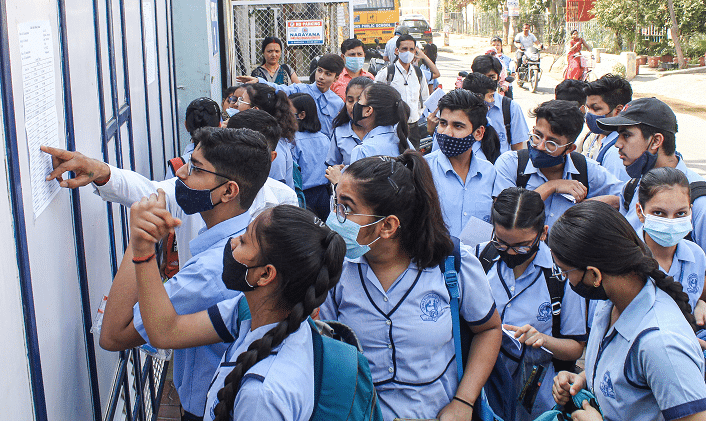CBSE Class 10 Exam: Ultimate Guide to Success in 2025

The CBSE Class 10 Exam is a pivotal academic milestone in India, assessing students’ understanding in core subjects, shaping their future academic and career path, and requiring strategic preparation, strong conceptual clarity, and effective time management to excel.
The CBSE Class 10 Exam is one of the mobilehms most important academic assessments for students in India. It serves as a foundation for higher secondary studies, career decisions, and overall academic confidence. With evolving curricula and competitive academic environments, students must approach the exam strategically.
This guide is designed to provide complete insight into the CBSE Class 10 Exam, including syllabus, exam pattern, preparation strategies, sample questions, time management tips, and mental wellness guidance.
Personal Details Table (Guide Author’s Information)
| Attribute | Details |
|---|---|
| Author Name | Dr. Ananya Verma |
| Qualification | PhD in Education, M.Ed |
| Experience | 12+ Years in Academic Coaching & CBSE Curriculum Guidance |
| Expertise | Exam Strategy, Student Mentorship, CBSE Curriculum |
| Published On | 2025 |
| Last Updated | August 2025 |
What is the CBSE Class 10 Exam?
The CBSE Class 10 Exam is conducted by the Central Board of Secondary Education (CBSE) in India. It is a standardized evaluation across all CBSE-affiliated schools to assess students’ understanding in core subjects including:
-
Mathematics
-
Science
-
Social Science
-
English
-
Hindi / Second Language
Purpose:
-
Evaluate conceptual understanding and problem-solving skills.
-
Prepare students for higher secondary studies.
-
Identify strengths and weaknesses to guide academic growth.
Significance:
CBSE Class 10 results often influence:
-
Admission to prestigious higher secondary schools (Class 11).
-
Early scholarships and academic recognition.
-
Building a strong foundation for competitive exams in the future.
CBSE Class 10 Exam Pattern
Understanding the exam pattern is crucial for effective preparation.
| Subject | Exam Type | Marks | Duration | Weightage |
|---|---|---|---|---|
| Mathematics | Theory + Internal | 80 + 20 | 3 Hours | Problem Solving & Practical Skills |
| Science | Theory + Practical | 80 + 20 | 3 Hours | Concepts & Experiments |
| Social Science | Theory | 80 | 3 Hours | History, Geography, Civics, Economics |
| English | Theory + Internal | 80 + 20 | 3 Hours | Literature, Writing, Grammar |
| Hindi / Second Language | Theory + Internal | 80 + 20 | 3 Hours | Reading, Writing, Grammar |
Key Points:
-
Theory Exams: Assess conceptual clarity and problem-solving skills.
-
Internal Assessments: Conducted through projects, practicals, and assignments.
-
Evaluation Criteria: Includes understanding, application, and analytical ability.
CBSE Class 10 Syllabus 2025
Mathematics: Algebra, Geometry, Trigonometry, Statistics, Probability, Coordinate Geometry, Mensuration.
Science: Physics (Light, Electricity, Motion), Chemistry (Chemical Reactions, Acids & Bases), Biology (Life Processes, Genetics).
Social Science: History (Freedom Struggle, Modern India), Geography (Resources, Environment), Civics (Democracy, Governance), Economics (Fundamentals, Sustainable Development).
English: Reading Comprehension, Writing Skills, Grammar, Literature (Prose, Poetry, Supplementary Reading).
Hindi / Second Language: Grammar, Reading, Writing, Literature.

Effective Preparation Tips
-
Understand the Syllabus Thoroughly:
Divide topics into strong, moderate, and weak areas for focused preparation. -
Create a Study Schedule:
Allocate time for each subject, revisions, and practice tests. -
Practice Sample Papers & Previous Year Questions:
Enhances familiarity with question patterns and improves time management. -
Focus on Conceptual Clarity:
Instead of rote learning, understand underlying concepts, especially in Science and Mathematics. -
Regular Revision:
Weekly revisions prevent forgetting and strengthen memory retention. -
Time Management:
Use a timer while solving mock papers to simulate actual exam conditions. -
Mind Mapping & Notes:
Summarize key points using diagrams, flowcharts, and bullet notes.
Mental Health & Stress Management
Exam preparation can be stressful. Follow these tips to maintain mental well-being:
-
Practice short meditation sessions for focus.
-
Maintain proper sleep schedules.
-
Take short breaks during study hours.
-
Engage in physical activity to refresh the mind.
-
Avoid last-minute cramming; focus on consistent preparation.
Subject-Wise Expert Tips
Mathematics
-
Solve previous year papers to understand commonly repeated problems.
-
Focus on formulas and theorems; maintain a separate formula notebook.
-
Practice word problems to enhance application skills.
Science
-
Revise practical experiments and diagrams.
-
Understand chemical equations, physics formulas, and biological processes.
-
Apply the concept to solve analytical questions.
Social Science
-
Make timelines for History topics.
-
Practice map-based questions in Geography.
-
Memorize key definitions in Civics and Economics.
English
-
Improve reading comprehension by daily reading exercises.
-
Practice grammar exercises regularly.
-
Enhance writing skills with essay and letter writing practice.
Mock Exams & Evaluation
-
Take full-length mock exams to improve stamina and confidence.
-
Evaluate performance critically and identify areas for improvement.
-
Revise weak topics before attempting the next mock.
Comparison Table: CBSE Class 10 vs Other Boards
| Aspect | CBSE Class 10 | State Boards | ICSE Class 10 |
|---|---|---|---|
| Syllabus Standardization | Nationwide | State-level | Moderate |
| Exam Difficulty | Moderate | Varies | Higher |
| Assessment | Theory + Internal | Mostly Theory | Theory + Internal |
| Recognition | National & Global | Regional | National |
| Preparation Resources | Widely Available | Limited | Moderate |
Future Scope Post CBSE Class 10
-
Choice of streams in Class 11: Science, Commerce, Humanities.
-
Early preparation for competitive exams like NTSE, Olympiads, and JEE.
-
Foundation for career exploration in engineering, medicine, arts, and business.
-
Develops problem-solving, analytical, and writing skills necessary for higher studies.
FAQs About CBSE Class 10 Exam
Q1: What is the passing criteria for CBSE Class 10?
Students must score a minimum of 33% in each subject.
Q2: How many subjects are included in the CBSE Class 10 Exam?
Typically 5 core subjects, including two languages.
Q3: Is CBSE Class 10 mandatory for higher education?
Yes, it is a prerequisite for Class 11 admissions in any stream.
Q4: Can students appear for compartment exams if they fail?
Yes, CBSE offers compartment exams for failed subjects.
Q5: How can students access the official syllabus?
The syllabus is available on the official CBSE website (cbse.nic.in).
Conclusion
The CBSE Class 10 Exam is a critical academic milestone that shapes students’ higher education and career pathways.
With strategic preparation, conceptual clarity, effective time management, and mental wellness practices, students can excel in the CBSE Class 10 Exam. Remember, consistent effort and smart study techniques are key to scoring high and building a strong academic foundation for the future.




